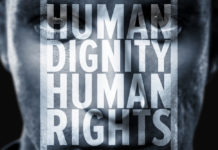Reflections on a Pathologized Adolescence and a Vision for the Future
My heart envisions a future of grassroots community-based, free, accessible, welcoming, non-judgmental and safe spaces for young people in the middle of the hurricane of adolescence....They will be spaces facilitated by those of us who’ve reclaimed what it means to be human.
I’m Introverted, Not Depressed!
Urging introverts to act more extroverted as a pathway to greater life satisfaction is wrongheaded. Elizabeth's case is one where the demoralization and despondency she experiences—forced to sacrifice her needs as an introvert to comply with the social scripts required to live in an extroverted world—masquerades as depression.
Giving Caregivers a Platform: Chandra, Mother of Sophia
This is the story of Chandra and her daughter Sophia (not their real names), who has been in the mental health system since the age of 10.
The Real “Mental Illness” Epidemic: Withdrawal from Antidepressants
If the incidence of mental illness has remained the same, but an ever-increasing percentage of the population takes psychiatric medications, then these drugs are being over-prescribed. Now there is an epidemic of people trying to stop SSRI antidepressants, and the effects can be crippling.
Madness in Civilisation: A Cultural History of Insanity
Until recently the history of psychiatry was a neglected backwater whose murky depths were explored largely by psychiatrist. The impression conveyed by books such as Tuke’s Chapters in the History of the Insane in the British Isles, Macalpine and Hunter's Three Hundred Years of Psychiatry: 1535 - 1860, Berrios and Freemen's 150 Years of British Psychiatry 1841 - 1991, or Fuller Torrey and Miller's The Invisible Plague, is one that sees psychiatry and modern systems of mental health care as the inevitable outcome of progress through scientific thought, a (white European male-led) narrative from darkness and ignorance to enlightenment and knowledge.
The Esalen Connection: Fifty Years of Re-Visioning Madness and Trying to Transform the World
When Richard Price was a young man, he experienced extreme states for which he was labeled schizophrenic and forcibly ‘treated’ with psychiatric medications, ECT, and insulin shock. He suffered from residual effects from this for the rest of his life. In 1962, Price and Michael Murphy founded the Esalen Institute on the Big Sur coast of Northern California. From its beginning, Esalen worked to create sanctuary for people who, like Price, experienced extreme states. "Esalen was Price's revenge on the mental hospital!" says Murphy.
An Intersubjective Approach to Treating Young Children With Autism and Related Challenges
For too many years I was taught and believed that children diagnosed with autism were incapable of learning through the normal channels of relationship. I accepted that they must be taught differently and could easily dismiss their frequent displays of emotional distress as simply a symptom of their autism. This all changed when I attempted to reconcile what the autism intervention and child development fields had to say about what children need for optimal social and emotional development.
So-Called Suicide Experts Recommend Antidepressants, Which Increase Suicides
They are biased towards drug use and cherry-pick the studies they quote even when they call their reviews systematic.
Psychiatry: Worth Keeping If “Slowed Down”?
The faults of modern psychiatry are numerous and profound, and many readers here know firsthand about its destructive force. But are these faults so vast that there is nothing worth saving?
Changing the World and Other Extreme Sports
By Dani, Director at Afiya
For anyone who’s unfamiliar, Afiya is the first peer-run respite in Massachusetts and it is one of only about 18 in the country. It’s no surprise, then, that people are confused about how we do things. But, it’s not just confusion. I’ve come to realize there is actual defensiveness that arises at times when we talk about what we do at the house. If I’m wearing my activist hat, this can be supremely annoying.
On Relaxing Off-Label Meds: Do the Opposite. Especially for Children. Especially Antipsychotics
The US Food and Drug Administration has announced that there will soon be a public meeting to explore providing drug companies with greater flexibility in promoting off-label indications to doctors. When it comes to prescribing medications to children, and particularly psychiatric medications, this is a bad idea. I write both as a former consultant to the pharmaceutical industry, and as a father who lost a son to the toxic effects of antipsychotics prescribed off-label.
Lithium and Suicide: What Does the Evidence Show?
There appears to be increasing acceptance of the idea that lithium prevents suicide, and even that it can reduce mortality rates. For a toxic drug that makes most people feel rather depressed, this seems curious. I did wonder whether it might be having this effect on suicide by sapping people of the will to act, but the proposed effect on mortality seems completely inexplicable. A closer look at the evidence, however, suggests the idea is simply not justified.
How I feel After the Carter Center Social Inclusion Symposium
I just got back from the Carter Center Mental Health Symposium on Social Inclusion. I guess this is a prestigious invite, and I was expecting to meet people on the cutting edge of mental health research. I got invited based on my work with the Poetry for Personal Power program where I've helped get together over 1800 young people to talk on stage or listen to each other talking about what they do to get through adversity.
Black Hats, White Hats, and Financial Reckonings
It is clear now that the marketing of ayptical antipsychotics over the past 20 years was, in essence, a criminal enterprise, as the makers...
Dyskinesia, Dissociation, and the Long Term Consequences of “Antipsychotic” Drugs
I recently receive a tweet from Intervoice, that said “This is a odd research finding in my view, what do you think? http://fb.me/L9cs3NTR”
Curious, I...
The Brain that Changes Itself: How Breakthroughs in Neuroplasticity Can De-Pathologize Mental Health
Norman Doidge is a curious psychiatrist. He wanted to know how neuroplasticity could serve his practice and he sets out in his book, The Brain That Changes Itself, to interview and understand the work of leading neuroscientists who are using the natural neuroplasticity of the brain to heal everything from long-time post-injury paralysis to successfully managing OCD and anxiety.
Mad Flies and Bad Science
Tension mounts across the ideological divide as D-Day (DSM-5 Day) approaches. The APA has powerful allies on its side. President Obama has just launched Decade of the Brain 2 with the announcement two weeks ago that heralds the arrival of BRAIN ( Brain Research through Advances in Innovative Neurotechnologies). If that’s not enough, those who believe that science will ultimately explain madness can always rely on the media to fawn at their feet.
The Murphys Have Their Way With Words
Senator Chris Murphy of Connecticut released a new ‘Murphy Bill’ this past week. It’s called the ‘Mental Health Reform Act of 2015,’ though it has yet to be assigned an official number. While many words appear in its more than 100 pages, it’s worth noting that the term ‘evidence’ (most often paired with ‘based’ to form the familiar and supposedly scientific phrase, ‘evidence-based’) appears 27 times. Never to be outdone, the almost 200-page House version (‘Helping Families in Mental Health Crisis,’ H.R. 2646) from Representative Tim Murphy uses the same word 38 times. This makes sense. Why wouldn’t anyone want anything to do with… well… just about anything…
Embracing Movement Diversity
The psychiatric survivor movement (and our overall “movement,” some of whom don't identify as psych survivors) is about as diverse and varied as the world itself. We are becoming perhaps the largest social justice movement ever to exist. Almost all women and queer people have been categorized by DSM diagnoses for being women (PMS, postpartum depression) or queer (homosexual, gender identity disorder), not to mention all the other groups who have been affected. Everyone is a survivor of the effects of the psychopharmaceutical industry on our consciousness.
Unhelpful Utterances: 6 Comments We Should No Longer Hear From Mental Health Professionals
Professionals are paid to share their wisdom with those who are, typically, less informed. But, when dealing with mental health professionals in the psychiatric arena, it is wise to retain a degree of skepticism about the words spoken by the doctors and nurses commissioned to help reduce human misery and suffering.
A New Year’s Letter to Our Readers: The Past, Present, and Future of MIA
The beginning of a New Year is always an occasion for looking back at past accomplishments (and failures), and to look ahead too, at what the New Year may bring. And as 2016 opens, it’s clear that MIA has reached a crossroads moment. We can look back and see many accomplishments, and we can look ahead and see many exciting opportunities. But we also have to confront a challenge: we need to figure out how to sustain our operations.
Joint Statement on COVID-19 and Persons with Psychosocial Disabilities
During this global pandemic, organizations have come together to issue a joint statement making recommendations to governments on how to respect and ensure the human rights of people with psychosocial disabilities, who are among the groups more vulnerable to human rights violations as well as infection with and severity of the illness.
Investigate the Markingson Suicide? Not So Fast, Says University President
Responding to a letter signed by 175 scholars asking for an inquiry into the death of Dan Markingson at the University of Minnesota, the Faculty Senate voted to investigate clinical research at the university. But the university president says the Markingson case will not be part of the investigation. What is he trying to hide?
The Schizophrenia Genetics Illusion—A Century of Failure and Hype
This is the schizophrenia game. It has been played for over a century, and it’s time to stop.
Trump Anxiety Disorder Is More Fake News
For many people, the current political situation around the world is intensely frightening and not without cause. Depression and anxiety are on the rise, but we need a social model revolution in order to look at why this is happening. Labels like Trump Anxiety Disorder are merely a way to put people’s concerns in a box and leave them unaddressed.

















